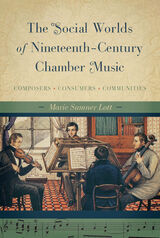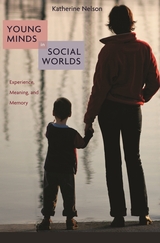
Researchers in child development often study children in isolation--apart from the environmental influences that shape, nurture, or harm them. In Children of Social Worlds, leading social scientists show how much is lost by this approach. Their underlying assumption is that children's psychological development can be understood only in the context of the social worlds in which they grow up and that the disciplinary boundaries of traditional psychology must be expanded. This book offers insights from scholars in a variety of disciplines--anthropology, education, linguistics, economics, medicine, and law, in addition to psychology. The result is a wide-angle perspective on child development based on some of the best research in the field.
The authors look particularly at broad trends and patterns, addressing such issues as the effect of institutions on family life, the changing roles of parents, cross-generational effects on development, the status of children in the legal system, schooling and learning, gender differences, the acquisition of communication skills, and the psychological impact of the nuclear threat. Chapters on cultural and historical definitions of the family add depth to their argument. Included, too, are discussions of emotional development and psychoanalytic theory, topics that are receiving increasing attention. The authors also reflect on the directions that research is likely to take in the future.
This well-balanced, closely integrated volume is full of innovative ideas and is written in a style that will be accessible to both specialists and students. As an incisive and informed evaluation of the field, it is sure to become an essential resource for psychologists, social workers, psychotherapists, social policy analysts--all who are concerned with human development in its social context.



Katherine Nelson re-centers developmental psychology with a revived emphasis on development and change, rather than foundations and continuity. She argues that children be seen not as scientists but as members of a community of minds, striving not only to make sense, but also to share meanings with others.
A child is always part of a social world, yet the child's experience is private. So, Nelson argues, we must study children in the context of the relationships, interactive language, and culture of their everyday lives.
Nelson draws philosophically from pragmatism and phenomenology, and empirically from a range of developmental research. Skeptical of work that focuses on presumed innate abilities and the close fit of child and adult forms of cognition, her dynamic framework takes into account whole systems developing over time, presenting a coherent account of social, cognitive, and linguistic development in the first five years of life.
Nelson argues that a child's entrance into the community of minds is a slow, gradual process with enormous consequences for child development, and the adults that they become. Original, deeply scholarly, and trenchant, Young Minds in Social Worlds will inspire a new generation of developmental psychologists.
READERS
Browse our collection.
PUBLISHERS
See BiblioVault's publisher services.
STUDENT SERVICES
Files for college accessibility offices.
UChicago Accessibility Resources
home | accessibility | search | about | contact us
BiblioVault ® 2001 - 2024
The University of Chicago Press









